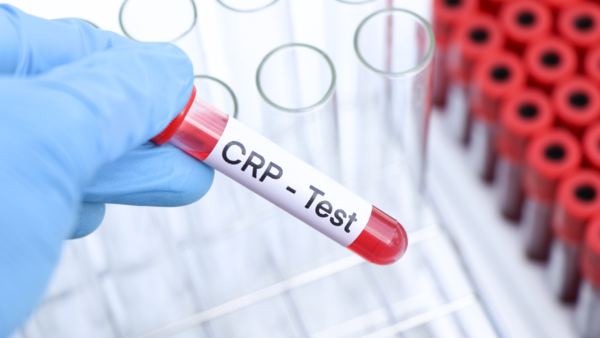Two Important Blood Tests to Predict Heart Attack Risk

Heart attacks often have warning signs. The body usually gives hints before a major event. While we often look at cholesterol and blood pressure, two other blood tests can show hidden risks. These are Homocysteine and C-reactive protein (CRP).
These aren’t just buzzwords. They are proven indicators of hidden inflammation and damage in blood vessels. What makes them special is that they are easy to test but often missed in routine check-ups.
Homocysteine
Homocysteine is a type of amino acid. It’s made when protein is broken down. Normally, it turns into harmless substances with the help of B vitamins, like B6, B12, and folic acid.

B Vitamins, especially B6, B9 (folate), and B12, do a lot of good. They help reduce the risk of eye diseases and prevent nerve damage. They also lower homocysteine levels, which are linked to eye problems.
High homocysteine levels can hurt the inside of blood vessels. This makes them more likely to have plaque build-up and clots, which can lead to heart disease.
A review showed that high homocysteine levels can increase the risk of heart problems by 1.7 times. It’s not just a marker—it’s a risk factor. Yet, it’s often not checked in routine blood tests.
Why High Homocysteine Often Goes Undetected
Most health check-ups don’t include a homocysteine test. Maybe it’s because cholesterol gets more attention, or perhaps because the test isn’t as well-known.
But here’s the thing: homocysteine levels can rise quietly. This is especially true in people with poor diets, smoking habits, or certain genetic differences (like MTHFR gene variants).
The good news is that the fix is often simple. Correcting B-vitamin deficiencies can lower homocysteine levels. This might help prevent future heart damage.

C-Reactive Protein (CRP)
CRP is like the body’s warning system. It’s made by the liver and goes up when there’s inflammation in the body. This can happen even if the inflammation is deep inside the blood vessels and doesn’t cause symptoms.
A high CRP level can mean a heart attack might happen soon. This isn’t just a theory. A study found that people with high CRP levels had twice the risk of future heart attacks, even when their cholesterol levels were normal.
The high-sensitivity CRP (hs-CRP) test is especially important. It can detect even small increases in inflammation. This test is considered more accurate for predicting heart risk than the standard CRP test.
Chronic low-grade inflammation doesn’t get enough attention. But it’s a dangerous part of heart disease. The arteries don’t always show obvious blockages. Instead, small, inflamed areas along vessel walls can make them more likely to rupture and form clots.
CRP acts like a mirror to this hidden inflammation. And if CRP levels are consistently high, it’s a signal worth acting on, even if everything else seems normal.
Warning Signs Before a Heart Attack
- Chest pain or discomfort
- Shortness of breath
- Pain or discomfort in the arms, back, neck, jaw, or stomach
- Feeling lightheaded or dizzy
- Nausea or vomiting
- Breaking out in a cold sweat
- Fatigue or unusual tiredness
Why These Tests Matter More Than Ever
It’s easy to feel safe when blood pressure and cholesterol seem fine. But heart disease isn’t always obvious. Sometimes it’s slow and silent.
Homocysteine and CRP don’t just add to the picture; they complete it. They show risks that might be missed by traditional testing. For someone with a family history of heart disease or unexplained fatigue or dizziness, these tests could find problems years before a heart attack ever happens.



